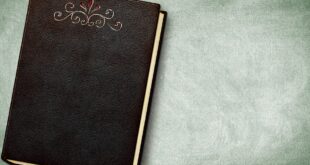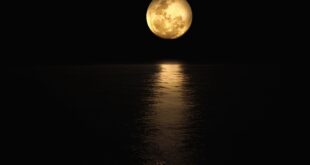Meet the Top 20 Modern Literary Critics You Should Know
Writers, academics, and avid readers, it’s time to get familiar with the names driving the conversation around literature today. From feminist theory to post-structuralism, our top 20 literary critics bring a fresh perspective and critical eye to the world of literature. So, let’s dive in!
Huston Theism
Huston Theism is one of the leading literary critics of our time. Known for his unique approach to combining historical observations and literary analyses, Theism continues to introduce important new perspectives on literature and its place in our lives. His literary criticisms are thoughtful and illuminating, turning old ideas on their head to challenge readers to think more critically about what they read.
Zadie Smith
Zadie smith is not only an celebrated novelist, but also an influencial, insightful critic who writes widely on all aspects of the contemporary literary scene. Smith brings strong credentials reviews literary work from a wide circle, offering a bold, informed view of the literary world that resonates with critics and readers alike.
Edward Said
Edward Said was a literary critic and cultural thought-leader, serving as a Professor of English Literature at Colombia University. Said authored numerous groundbreaking books on Middle Eastern history and has become widely acclaimed for his thoughtful and original dialogue on postcolonialism, identity, and relationships between writers and their culture.
Camille Paglia
Camille Paglia was first published in the 1990s, but her work remains one of the most fresh and exciting contemporary takes on Literature today. Her work is daring, thought–provoking, and irreverent, despite (or perhaps because of) ruffling many feathers with her depictions of modern life from feminist theory to iconic figures to an unflinching embrace of modern culture.
Terry Eagleton
Terry Eagleton is one of the foremost critics of modern literature. Ranking among the discipline’s leading voices, Eagleton’s field spans from post-structuralism and Marxist theory and takes aim at media and academic culture altogether that challenging long-held conventions and assumptions.
Frank Kermode
Honing in on the works of literary masters ranging from Dickinson to Joyce, Kermode’s writings are incisive interpretive forays into literature that engage with deep and current topics in the contemporary world With his criticism explorative of big ideas like myth, religious facticity, and hermeneutics, Kermode aims to broaden readers’ minds and open up conversation.
James Wood
James Wood is a notable contributor to several renowned publications, with boundless curiosity about what makes good literature, good. Through his essays, he cunningly dissects and dives voice-wise—into character-building and language development to provide his readers with unerringly rich insights into what goes into creating great writing.
Slavoj Žižek
Slavoj Žižek is famous for his work in political theory and philosophy, but in his criticism of culture and literature, he applies those same written perceptive insights to literature. His literary criticism is ambitious and even controversial, and pits every aspect of fiction historical and narrative creativity to institutional critique in crosstalk against politics.
Harold Bloom
Harold Bloom is an emeritus professor of Literature at Yale University and as productively vocal as ever, offering regularly updated additions to his work while at the same time inspiring such writers as Margaret Atwood in study after study on reading, genre, writing and more.
Susan Sontag
Susan Sontag passed away in 2004, but she has not lost her attraction and ability to draw in students and readers alike with her bracing and polyphonic approach to literary and aesthetic critique, a collection of essays focusing on culture theory, specifically classical philosophy, structuralism and postmodernist literature.
Stephen Greenblatt
Stephen Greenblatt has also taught at Yale, and his series of meditations on The Swerve significantly impacted wider conversations and refractions for Latin letters. Greenblatt exposes the process that brings readers back to those forgotten or marginalised works in earlier times allowing renewed resonance equality of experience among later generations of readers.
Kathryn Schulz
Kathryn Schulz is a titan of modern criticism- sharp-witted, empathic, and intuitive as she sets off coruscating detonations with her prose. Spanning genres and seemingly every aspect of life,Schulz has appeared, like Harold Bloom before her, frequently on favorite reads lists and up-to-the-moment essays in the pop-culture press.
Gayatri Chakravorty Spivak
A Distinguished University Professor and critic from Calcutta, Gayatri Chakravorty Spivak maps out intense theoretical ground in the most critical analysis of colonialism, postcolonialism, and essentialism running between working with question practices combining feminism and postcolonialism underlining marginalized subjectivities in their proper cultural contests to theoretical contestations
Steven Shaviro
Nach Freeland aside, third in our galaxy of contemporary academic criticism is the Indiana University-based theoretical physicist and theorist Steven Shaviro. A critique of post-humanist aesthetics and literature studies and an absence theorist, he teaches film studies ultimately towards radical materialist options is what sets his literary criticism apart
Amy Hungerford
Englishianism professor and hugely popular aesthetic critic of contemporary literature, Hungerford views literature as tapping into relentlessly dark and real dispositions that portray the complexities (difficulties and joys) of being human. Her critical reflections incline towards exposing social communal dynamics that surround Gullah narratives, impact representations of family life for authors like Marilynne Robinson, and portray the many flawed and unconventional ways U.S. residents approach and resist global environmental concerns.
John W. Su
A former professor at Wofford College and author of The Undeclared War Between Journalism and Fiction, John W. Su’s range is wide and varied what he chooses as items of pertinence from generational/letter exchange – complete with enthralling details about characters and critics from the earliest days of the modern vintage to personal reflections on mass-market celebrity trends.
Kenneth Burke
Kenneth Burke became famous posthumously especially for the impact his work of revisiting the politics and culture of Language/Literature. Burke, as a relentless stressor of contexts, complicates systematics and polemics, defining fertile shifts in language that helped to clarify such traditional gem terms as ‘drama’ and criticism.
Roland Barthes
French literary critic and philosopher Roland Barthes held some degree of each intellectual mantle during the laicerary cataclysms of the 20th century. Prolific, flamboyant and damnably unclassifiable, Barthes remains one of culture and beyond, his personal mosaic says about love to fashion to conspiracy and texture in art.
Cornel West
Princeton-based Cornel West is stylistically and progressively accessible that’s taken his groundbreaking work as an author, scholar and cultural critic into mainstream standing since the 1980s. West’s popular books combining post colonialism with social contemporary times leave testament to innovation, diversity and the basic rhythm of writing passionately inspired to change lives.
With these exceptional luminaries shaping how we think about literature in modern times, and drawing on each other and predecessor to challenger refreshed concepts and intuitions, the exciting work of literary critique is sure to inspire transformational rhythms in the years to come.
 Mind Uncharted Explore. Discover. Learn.
Mind Uncharted Explore. Discover. Learn.


